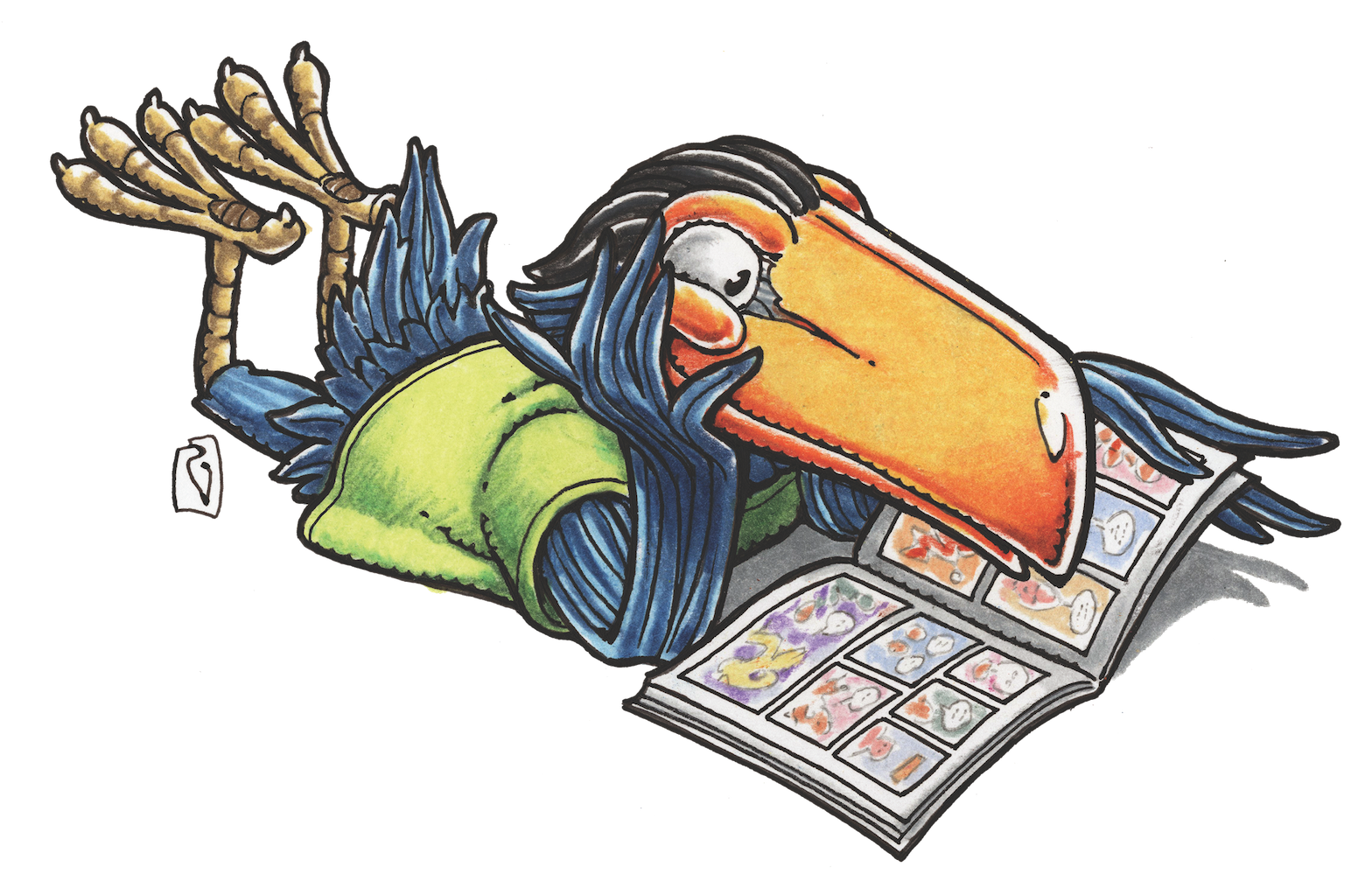MARC BERNARDIN’S DEVOURER OF WORDS
Devourer of Words 061: Gearing Up


With the hotel lottery behind us — I hope the odds were in your favor — it’s time to focus on what’s really important for writers at SDCC. No, it’s not the parties you’re gonna try and get into, or the fancy lounges you want to crash, or the exclusives you wanna snag, or the selfies you wanna grab. To be clear, all of those things are cool, but they’re bonuses—dessert to the main course of getting some face time with an editor and pitching something.
If you’re anything like me, you’ve got a barn full of ideas chomping at the bit to get out there. Dozens of stories that you’ve been noodling at for years. It’s simply not practical, or advisable, to prepare yourself to bring all of them to a convention hoping to sell every one. You need to choose. Pretend you can only bring three ideas with you.
1. The ones you’re hoping to pitch need to be more than mere ideas.
“Wouldn’t it be awesome if dragons invented time travel?” isn’t enough. You need to have primary characters, the main conflict, how it begins, a ballpark of how long the story will go, and a vague sense of how it ends. (Every editor worth their salt—and even most worth far less—understand that how you imagine a story will end at commencement of telling the story will change as you tell it. Especially serial stories. No one will hold you to it. They just want to know that you’ve thought about it.)
A prospective buyer wants to feel like you know the story you want to tell.
2. Choose the ones you’re most excited about.
Imagine you’ve spent the weekend watching movies and roll into work jazzed to tell your coworkers about the best thing you saw. You are, in essence, trying to convince them that they should watch the movie, too. That’s the kind of enthusiasm you need to be able to summon in a pitch. Make it so that the editor similarly can’t wait to read this comic—and the only way they can do so is to pay you money to make it.
At this stage, excitement is the coin of the realm. If you can make someone else excited, you’re halfway there.
3. Start picking your targets.
Now is also the time to do research. Walking around the convention floor pitching everything to everyone is neither advisable nor possible. Which publishers make the kinds of books you want to make? Which editors names are on those books? Those are the people you’re going to want to try and sit down with.
4. Refine. Rewrite. Rehearse.
Those three ideas you picked? Time to make them great. Go through them over and over again. Pitch them to someone you trust to give you real feedback. Do they make sense? Does the emotional story pack a wallop? (Remember, for as much as comics can be all puncho-explodo, the reason people return to serial stories is because they care about the characters and what they’re going through.) And when you think you’ve got the story and the characters down, write the 50-word version of your pitch. The elevator pitch. You’ve got 30 seconds: Dazzle them. “A farm boy from a nowhere planet gets pulled into an intergalactic war by a beautiful space princess, a jaded old warrior monk, and a swashbuckling pilot—to discover he’s the hero the galaxy’s been waiting for.” Or whatever.
If the editor says, “Oooo, I like that one,” be prepared to go more into depth. How do those characters relate to each other, what are the opposing sides of the main conflict, and how does the hero of your story grow and evolve with every victory and defeat? Instead of 50 words, now you’ve got three paragraphs.
Rinse and repeat for each of your three ideas.
Pretend like this is your training montage. You’re gonna start weak, unsure. But you’ve got three months to get yourself in shape for the Big Game. Time to start working out. Worry about the selfies later.
Marc Bernardin’s Devourer of Words appears the third Tuesday of every month here on Toucan!